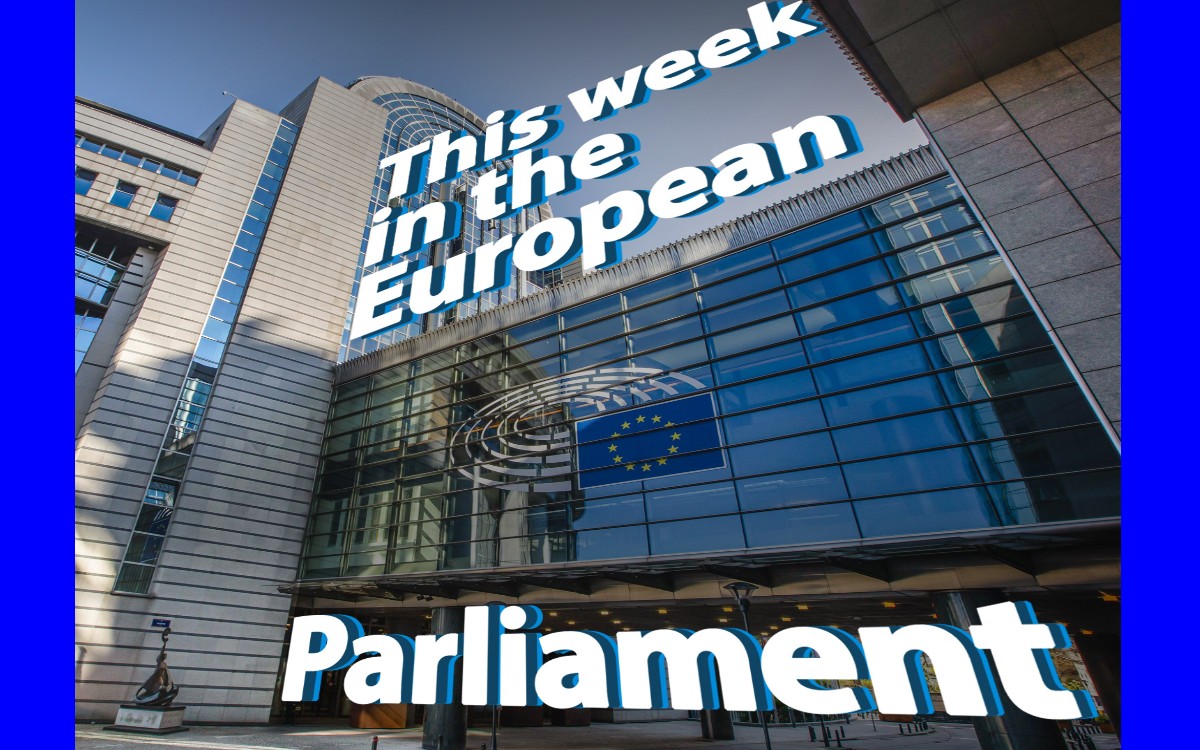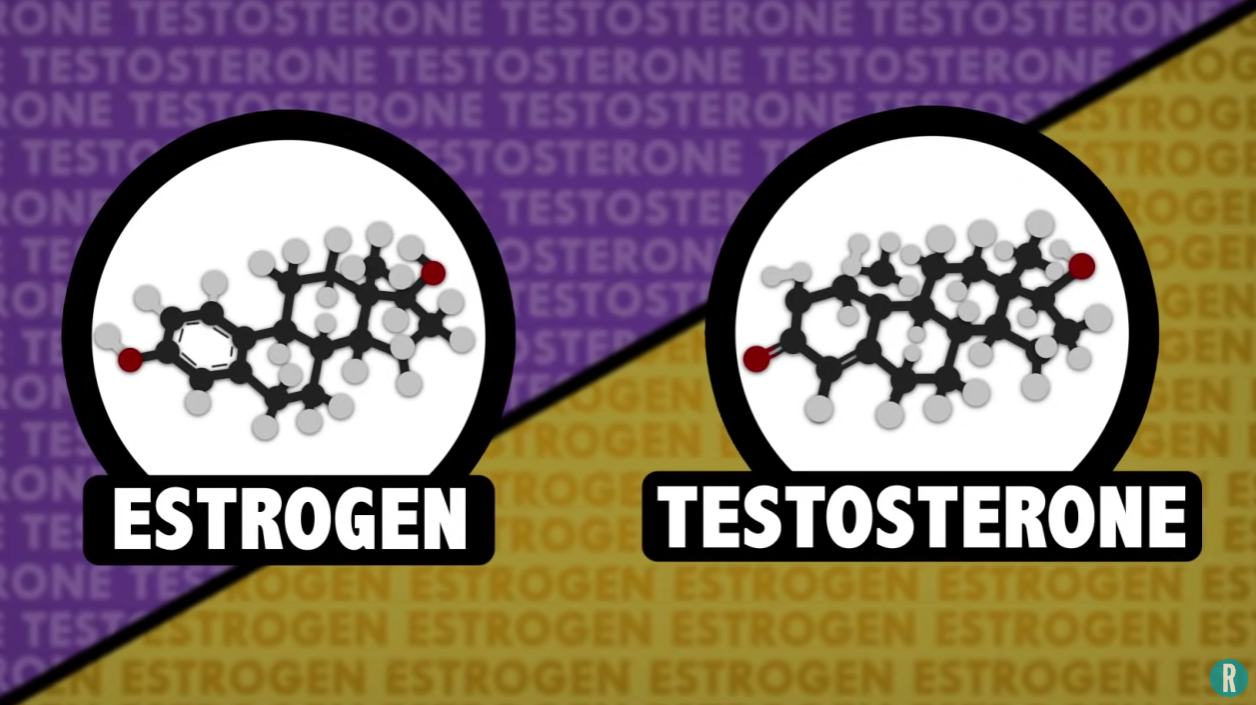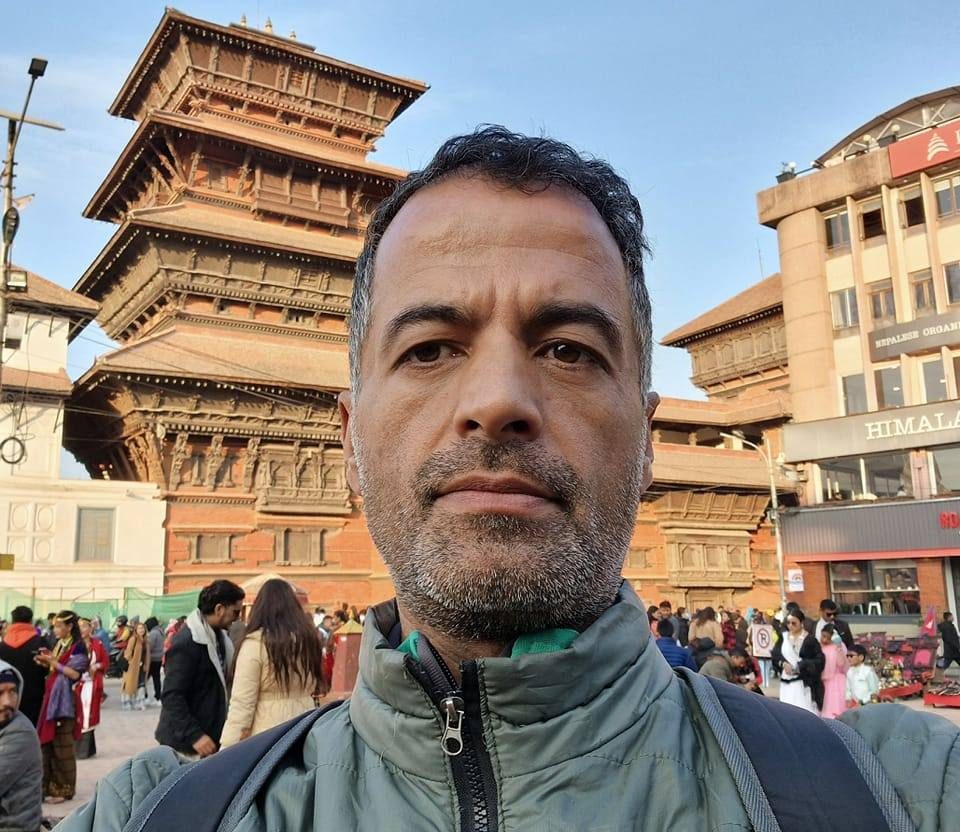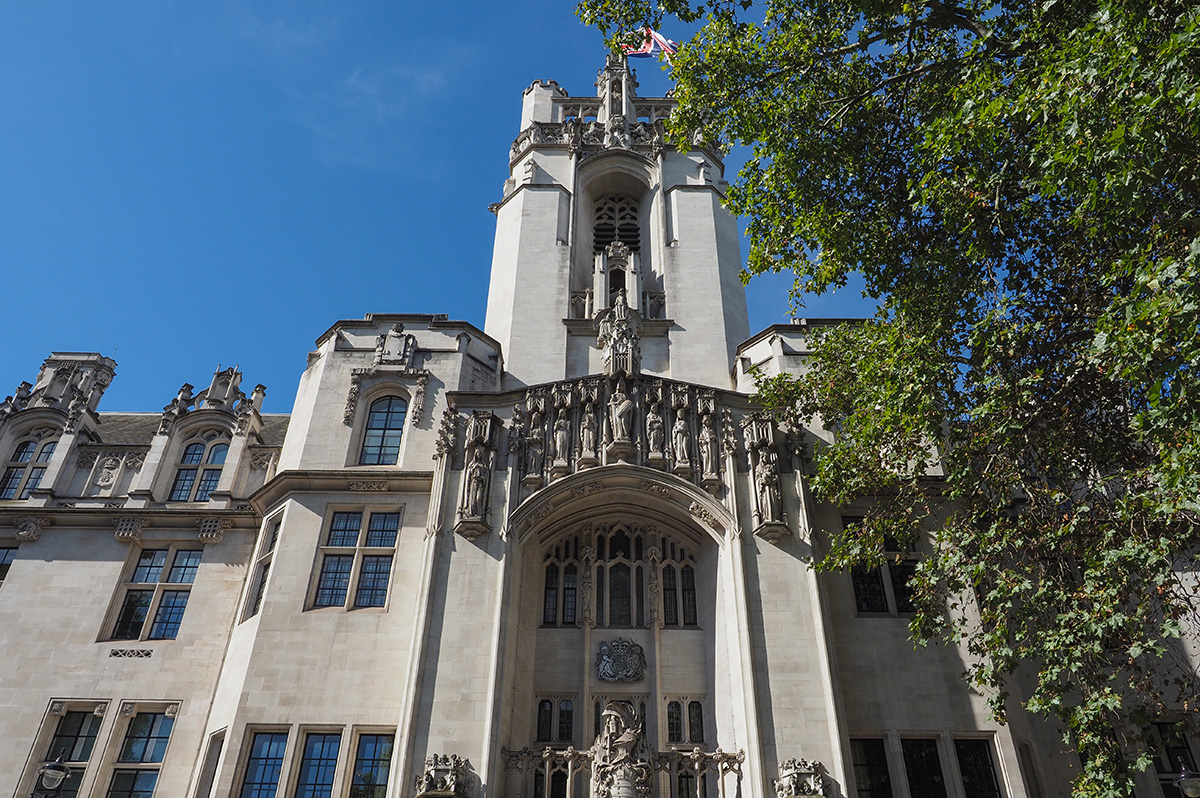World
Out in the World: LGBTQ news from Europe and Asia
Huang Jie is Taiwan’s first openly gay national lawmaker

GERMANY

Rallies attended by hundreds of thousands have taken place in cities around Germany in recent days, after revelations by German investigative media outlet Correctiv that extremist far-right Alternative für Deutschland party, or AfD, has plans for the mass-expulsion of foreign nationals and including German citizens born from migrant parents.
The AfD, co-chaired by lesbian German politician Alice Elisabeth Weidel along with Tino Chrupalla, held an event at headlined by Austrian neo-Nazi activist and author Martin Sellner, where plans regarding the deportation of millions of immigrants of “foreigners,” including citizens deemed not to have adequately “assimilated” into German culture, were discussed.
The AfD has sought to distance itself from the event although Roland Hartwig, a high-ranking member of the party and personal aide to Weidel was in attendance at the far-right gathering this past in November. Hartwig has since stepped down from his position after the disclosures by Correctiv.
In the Correctiv piece, their undercover journalist exhaustively recounts the chilling details of the secret meeting. The problem according to observers and German political strategists is the fact that AfD has steadily gaining influence and popularity. The Associated Press and German Media outlet Deutsche Welle both report that the recent protests also build on growing anxiety over the last year about the AfD’s rising support among the Germans.
The AP noted that the AfD was founded as a euro-skeptic party in 2013 and first entered the German Bundestag in 2017. Polling now puts it in second place nationally with around 23 percent, far above the 10.3 percent it won during the last federal election in 2021.
Last summer, candidates from the AfD won the party’s first-ever mayoral election and district council election, the first far-right party to do so since the Nazi era. And in state elections in Bavaria and Hesse, the party made significant gains.
The party leads in several states in eastern Germany, the region where its support is strongest — including three, Brandenburg, Saxony and Thuringia — that are slated to hold elections this fall.
Last April Germany’s domestic spy agency has classified the youth wing of the country’s far-right AfD party as an extremist entity and a threat to democracy. The decision could deal a blow to the party, which has so far failed in its legal bids to block security agencies from observing it and its affiliates, Deutsche Welle reported.
Although the AfD party co-chair is a lesbian in a state recognized “registered life partnership” as they are termed in Germany, she has stated her opposition to discussion of sexuality prior to puberty saying that “I don’t want anyone with their gender idiocy or their early sexualization classes coming near my children.”
She has also expressed her opposition to legalization of same-sex marriage, stating that she supports protection of the “traditional family” while also supporting “other lifestyles” The AfD itself is not progressive in terms of overall recognition of LGBTQ rights. Last year, the party even proposed a new sexual education curriculum that would significantly reduce the amount of information students receive on homosexuality, DW reported.
HUNGARY

The Hungarian government is not going to change its draconian anti-LGBTQ policies and laws, and its treatment of asylum seekers and refugees despite the European Union freezing billions of Euros and funding because of the unwillingness of Hungarian Prime Minister Viktor Orbán to make changes.
In a press conference on Jan. 18, Gergely Gulyas, Prime Minister Viktor Orbán’s chief of staff, told reporters there were “limits” to reaching an agreement with the EU Commission, its governing executive, since “modifying policies on LGBTQ+ and asylum rights would contradict the will of Hungarian voters,” Gulyas said.
“The Hungarian government is willing to reach an agreement with the commission, but in cases where people have expressed a clear opinion, it would be undemocratic and unacceptable,” Gulyas said, adding that there are “red lines” when it comes to reforms Hungary is willing to make.
“For Hungary, even despite the will of the European Commission, it is unacceptable to spread LGBTQ propaganda among children, and we also cannot abandon our position on migration issues,” he said.
Orbán in his speech at the 32nd Bálványos Summer Free University and Student Camp last July 22, castigated the EU for what Orbán defined as rejecting “Christian heritage.”
The government of the conservative ruling party of the prime minister has been feuding with the EU since passage of Hungary’s anti-LGBTQ education law in June 2021. Orbán, who has publicly proclaimed that he is a “defender of traditional family Catholic values,” has been criticized by international human rights groups as discriminating against LGBTQ people with this law which European Commission President Ursula von der Leyen called a “disgrace.”
“This bill clearly discriminates against people on the basis of their sexual orientation and it goes against all the values, the fundamental values of the European Union and this is human dignity, it is equality and is human fundamental rights, so we will not compromise on these principles,” said von der Leyen.
On the issue over asylum seekers, the AP reported that Hungary’s government has also implemented a policy of turning away asylum seekers at its borders and requiring them to begin their asylum process at Hungarian embassies in Serbia and Ukraine — a practice that was declared unlawful last year by the EU’s top court.
On Jan. 17 von der Leyen said in a statement that EU funds “will remain blocked until Hungary fulfills all the necessary conditions.”
EUROPEAN PARLIAMENT

The European Parliament adopted a report calling on the Council of the European Union to introduce hate crime and hate speech in EU criminal law. The report was adopted on Jan. 18 with 397 votes in favor, 121 against and 26 abstentions.
EU spokesperson Kyriakos Klosidis noted that these are crimes of a particularly serious nature with a cross-border dimension, for which Parliament and council can establish minimum rules to define criminal offences and sanctions.
GCN Ireland reported that currently, each EU member state deals with hate crime and hate speech in criminal law in different ways. Some countries, including Ireland, don’t even have legislation in place to protect people from hate crime or hate speech, or have provisions that only protect certain minority groups while excluding others, such as LGBTQ people.
“Parliament calls on the commission to consider an ‘open-ended’ approach, whereby the grounds for discrimination will not be limited to a closed list, to make sure the rules cover incidents motivated by new and changing social dynamics. It underlines that freedom of expression, as critical as it is, must not be exploited as a shield for hate and stresses that misusing the internet and the business model of social media platforms contributes to spreading and amplifying hate speech.
MEPs also ask for particular consideration to be given to minors, including in bullying in schools and cyberbullying, and call for a robust framework for victims, with an intersectional approach, training for relevant professionals, and measures to ensure safe access to justice, specialized support and reparations, as well as a safe environment to increase reporting of incidents.”
The National LGBT Federation of Ireland applauded the decision by MEPs:
“We strongly welcome today’s overwhelming vote in the European Parliament calling on hate crime and incitement to be added to EU wide laws. And for LGB and trans and other groups to be fully protected across the EU.”
During the debate prior to the vote, Spanish MEP and Rapporteur Maite Pagazaurtundua said: “In addition to lacking a comprehensive European legal framework to tackle hate speech and hate crime, we are facing new social dynamics, through which the normalization of hate evolves very quickly.”
“We must protect ourselves as a society and the people who are attacked, persecuted and harassed, while responding to the radical networks and extreme polarization that provide fertile ground for behaviors that violate fundamental rights,” Pagazaurtundua continued.
“We ask the council to finally give the green light to the legislation against hate crime and hate speech at EU level, always in accordance with the principle of proportionality and guaranteeing citizens’ freedom of expression.”
UNITED KINGDOM

The privately run Gender Plus Hormone Clinic has been approved by the Care Quality Commission, the UK’S independent regulator of health and social care, to prescribe hormones to patients aged over 16.
The clinic announced that hormone prescriptions will be available to transgender and non-binary patients aged 16 and older in line with current NHS gender service specifications for adolescents and adults.
“We are thrilled to announce that we are now Care Quality Commission (CQC) registered. We are the first independent child gender care service to achieve this and our hormone clinics are officially open. Regulation by the CQC ensures health and social care services in England are safe, effective and well-led, providing compassionate, high quality care,” the clinic said in an Instagram post.
Doctor Aidan Kelly, a clinical psychologist specializing in the area of gender identity, and the director of Gender Plus told GCN [Gay Community News- Ireland] in a November essay, “First and foremost transgender and gender diverse (TGD) people need care and compassion, to be respected and to feel heard. There are sadly a higher number of psychological and social difficulties faced by these individuals and these need to be supported, but this should not be at the expense of being able to access appropriate gender healthcare.”
PinkNewsUK reported a statement on the clinic’s website reads: “Regulation by the CQC ensures health and social care services in England are safe, effective and well-led, providing compassionate, high-quality care.”
“The Hormone Clinic is the only English independent gender child care prescribing service to be regulated by the CQC.”
The announcement comes just a few weeks before the NHS’s only gender-identity service for trans minors in England and Wales is scheduled to shut down.
BBC News reports that young people seeking gender-affirming care currently face a five-year wait time for their first appointment through the NHS.
TAIWAN

A 30-year-old political independent representing the Fongshan District on the Kaohsiung City Council won election this past week to the island nation’s unicameral legislature, the Legislative Yuan, making history as Taiwan’s first openly gay legislator.
Kaohsiung City Councilor Huang Jie was elected to the Legislative Yuan as a candidate of the Democratic Progressive Party to represent the sixth constituency [Legislative District] of Kaohsiung City.
Huang obtained 113,670 votes, or 51.01 percent of the vote, while her main rival, the Kuomintang’s Chen Mei-ya, a five-term city councilor, received 93,750 votes, or 42.07 percent, according to the final vote count released by the Central Election Commission.
English Language Media Outlet Focus Taiwan reported:
Thanking voters for their support and her campaign team for their hard work, the young politician said the “Kaohsiung spirit” — the willingness to give young, hardworking people opportunities to serve — had prevailed.
Winning the election is not the end, but the beginning of responsibility, she said.
“I will continue to safeguard [the wellbeing of] Kaohsiung and work to make it a place that shines internationally,” she added.
Focus Taiwan reported that in April 2023, Huang shared her coming out experience with the public. She said that she had not come out publicly when first starting her political career, but after she did, some voters had told her that she had given them courage.
Huang added that people campaigning for her recall had attacked her for being gay, which made her realize that there still needed to be advancements in Taiwan’s society in terms of ensuring equality for all and that she hoped to promote that through her involvement in politics.
NEPAL

Sunil Babu Pant, a Nepali human rights activist, monk, and former politician who served as a member of the Nepalese Constituent Assembly, was appointed the first-ever cultural emissary for LGBTQ-inclusive tourism in Nepal by Nepal Tourism Board at an event held at its office in the capital city on Jan. 19.
In a statement issued by the Nepal Tourism Board announcing his appointment, the board said, “This title has been conferred on Pant for his continued dedication and passion for initiating inclusivity and diversity within the tourism industry in Nepal.”
The board also noted in its certificate of appointment: “Pant’s role as cultural emissary holds significance in advocating for LGBTIQA+ tourism. By taking on this position, you have the opportunity to create a positive impact on both local and international levels, inspiring others to embrace the principle of equality and acceptance.”
“As a cultural emissary, we believe you will raise more awareness about the LGBTIQA+ issues, encourage LGBTIQA+ friendly policies and promote LGBTIQA+ friendly destinations and experiences,” the board stated.
“Your expertise and influence will undoubtedly contribute to the growth of pink tourism and help create a more inclusive and diverse travel industry,” the board added.
“I am grateful to the NTB for this opportunity,” Pant told the Himalayan News Service. “I will promote Pink Tourism along with justice and equality for the LGBTIQA+ communities in Nepal, in Asia, and around the world.”
Pant is the executive director of Mayako Pahichan Nepal and the former executive director, CEO, and founder of Blue Diamond Society, the first LGBTQ+ rights organization in Nepal.
Additional reporting by Correctiv, the Associated Press, Deutsche Welle, M1, GCN Ireland, Agence France-Presse, the BBC, PinkNewsUK, Focus Taiwan and the Himalayan News Service.
United Kingdom
UK Supreme Court rules legal definition of woman limited to ‘biological women’
Advocacy groups say decision is serious setback for transgender rights

The British Supreme Court on Wednesday ruled the legal definition of a woman is limited to “biological women” and does not include transgender women.
The Equality Act that bans discrimination based on sexual orientation and gender identity took effect in 2010.
Scottish MPs in 2018 passed a bill that sought to increase the number of women on government boards. The Supreme Court ruling notes For Women Scotland — a “feminist voluntary organization which campaigns to strengthen women’s rights and children’s rights in Scotland” — challenged the Scottish government’s decision to include trans women with a Gender Recognition Certificate in its definition of women when it implemented the quota.
Stonewall U.K., a British advocacy group, notes a Gender Recognition Certificate is “a document that allows some trans men and trans women to have the right gender on their birth certificate.”
“We conclude that the guidance issued by the Scottish government is incorrect,” reads the Supreme Court ruling. “A person with a GRC (Gender Recognition Certificate) in the female gender does not come within the definition of ‘woman’ for the purposes of sex discrimination in section 11 of the EA (Equality Act) 2010. That in turn means that the definition of ‘woman’ in section 2 of the 2018 Act, which Scottish ministers accept must bear the same meaning as the term ‘woman’ in section 11 and section 212 of the EA 2010, is limited to biological women and does not include trans women with a GRC.”
The 88-page ruling says trans people “are protected by the indirect discrimination provisions” of the Equality Act, regardless of whether they have a Gender Recognition Certificate.
“Transgender people are also protected from indirect discrimination where they are put at a particular disadvantage which they share with members of their biological sex,” it adds.
Susan Smith, co-founder of For Women Scotland, praised the decision.
“Today the judges have said what we always believed to be the case, that women are protected by their biological sex,” she said, according to the BBC. “Sex is real and women can now feel safe that services and spaces designated for women are for women and we are enormously grateful to the Supreme Court for this ruling.”
Author J.K. Rowling on X said it “took three extraordinary, tenacious Scottish women with an army behind them to get this case heard by the Supreme Court.”
“In winning, they’ve protected the rights of women and girls across the UK,” she added.
It took three extraordinary, tenacious Scottish women with an army behind them to get this case heard by the Supreme Court and, in winning, they’ve protected the rights of women and girls across the UK. @ForWomenScot, I’m so proud to know you 🏴💜🏴💚🏴🤍🏴 https://t.co/JEvcScVVGS
— J.K. Rowling (@jk_rowling) April 16, 2025
Advocacy groups in Scotland and across the U.K. said the ruling is a serious setback for trans rights.
“We are really shocked by today’s Supreme Court decision — which reverses 20 years of understanding on how the law recognizes trans men and women with Gender Recognition Certificates,” said Scottish Trans and the Equality Network in a statement posted to Instagram. “The judgment seems to have totally missed what matters to trans people — that we are able to live our lives, and be recognized, in line with who we truly are.”
Consortium, a network of more than 700 LGBTQ and intersex rights groups from across the U.K., in their own statement said it is “deeply concerned at the widespread, harmful implications of today’s Supreme Court ruling.”
“As LGBT+ organizations across the country, we stand in solidarity with trans, intersex and nonbinary folk as we navigate from here,” said Consortium.
The Supreme Court said its decision can be appealed.
El Salvador
Gay Venezuelan makeup artist remains in El Salvador mega prison
Former police officer said Andry Hernández Romero was gang member because of tattoos

A new investigation points to a discredited, former police officer who played a “key role” in the wrongful deportation of Andry Hernández Romero, a gay asylum seeker and makeup artist who was sent to a maximum security mega prison in El Salvador under Trump’s Alien Enemies Act.
USA Today found in a recent investigation that the former Milwaukee police officer who filed the report about Hernández, citing his tattoos as the reason for the gang affiliation, has a long history of credibility and disciplinary issues in his former police officer position.
The private prison employee who previously worked as a police officer until he was fired for driving into a house while intoxicated — among other alcohol-related incidents — “helped seal the fate” of Hernández.
The investigation by USA Today found that the former police officer accused Hernández of being a part of the Tren de Aragua gang because of his two crown tattoos with the words “mom,” and “dad,” which are now being identified as Venezuelan gang-related symbols.
Since then, his story has made headlines across the nation because Hernández has no criminal record and is legally seeking asylum in the U.S. due to credible threats of violence against him in Venezuela because of LGBTQ persecution.
He was targeted shortly after Trump invoked the Alien Enemies Act of 1798, which is a proclamation for all law enforcement officials to “apprehend, restrain, secure, and remove every Alien Enemy described in section 1 of [the] proclamation.”
Charles Cross, Jr., the former police officer, signed the report which wrongfully identified Hernández as a gang member. Cross was fired in 2012 after many incidents relating to his credibility and how it was affecting the credibility of the department to testify in court.
He had already been under investigation previously for claiming overtime pay that he never earned. In 2007, he had also faced criminal charges for damage to property, according to court records.
In March, the Washington Blade spoke with the Immigrant Defenders Law Center Litigation and Advocacy Director Alvaro M. Huerta regarding the case and stated that “officials with U.S. Immigration and Customs Enforcement and U.S. Customs and Border Protection alleged his organization’s client was a member of Tren de Aragua, a Venezuela-based gang, because of his tattoos and no other information.”
Hernández came to the U.S. last year in search of asylum and now makes up one of 238 Venezuelan immigrants who were deported from the U.S. to El Salvador, Honduras and Venezuela. Many of those being deported are being sent to the Center for Terrorism Confinement, a maximum-security mega prison in El Salvador, which has been accused of human rights violations.
According to the investigation, the Department of Homeland Security “wouldn’t offer further details on the case, or the process in general, but reiterated that the department uses more than just tattoos to determine gang allegiance.”
His story is now being looked at as a cautionary tale of the lack of due process of law the U.S. government is taking, as the Department of Homeland Security and Immigration and Customs Enforcement ramp up deportations across the nation.
Organizations like the Human Rights Campaign are now calling for Secretary of State Marco Rubio and Secretary of Homeland Security Kristi Noem to cease wrongful deportations and return Hernández home. The petition also urges the U.S. government to afford all Americans, forging nationals and asylum seekers residing in the U.S., due process of law as required by the Constitution.
Argentina
Gay, nonbinary parent fights for family in Argentina’s courts
Leonardo Hatanaka alleges they were fired after requesting paternity leave

An unprecedented case could set an important legal precedent for the rights of labor rights for LGBTQ families in Latin America.
Leonardo Hatanaka, a Brazilian pharmaceutical professional, expects an imminent ruling from the Superior Court of Justice in the Autonomous City of Buenos Aires in a case that alleges discriminatory dismissal based on sexual orientation, gender identity, and xenophobia after their son Matteo’s birth in Argentina via “solidarity gestation.” Human rights organizations and international agencies have followed the case closely.
Genzyme de Argentina S.A. and Sanofi in 2023 fired Hatanaka weeks after they notified them of their son’s paternity and requested 180-day parental leave.
“Matteo’s birth was the realization of a dream and the right to form a family with love, dignity and equality, even if that means having to fight every day for our family to be recognized as such,” Hatanaka told the Washington Blade in an exclusive interview.
The National Institute Against Discrimination, Xenophobia and Racism, a government agency known by the acronym INADI that President Javier Milei’s administration has shut down, in November 2023 said Hatanka’s termination was motivated by discrimination based on sexual orientation and gender identity.
(Milei took office in December 2023.)
The General Directorate of Coexistence in Diversity in Buenos Aires’s government in 2024 said institutional xenophobia motivated the firing.
“I am a gay man, foreign, nonbinary, and I had requested to exercise my right to parental leave,” Hatanaka explained. “The company denied access to a basic right to care, which it does provide in other countries, and did not provide any medical coverage for our son, despite his legal registration with both parents’ names.”
Sanofi did not acknowledge responsibility, offer apologies or any kind of reparations, despite the two rulings.
“It was devastating. I was caring for a newborn, at a moment of enormous vulnerability, and the company chose just that moment to abandon us,” said Hatanaka.
The National Labor Court overturned an initial injunction that ordered Hatanaka’s reinstatement. Hatanaka appealed the decision to the Superior Court of Justice in the Autonomous City of Buenos Aires.
“I hope for justice; that the discrimination suffered is recognized, and that this ruling serves as a precedent for all diverse families and LGBTQ+ people who are seeing their rights violated,” said Hatanaka.
The Argentine LGBT Federation, SOS Homophobie in France, and Mothers of Resistance in Brazil are among the organizations that have expressed their support. The latest U.N. report on anti-LGBTQ discrimination also notes the case.
“Companies must go beyond marketing,” Hatanaka emphasized. “Real inclusion requires concrete actions, consistency, and respect for their own policies.”
Hatanaka stressed that “there are instruments such as the UN Guiding Principles on Business and Human Rights. It is time for them to comply with them.” The lawsuit has also become a symbol of the struggle for equality and protection of families with parents who are the same sex.
“I feel I represent many LGBTQ+ families who live in fear of losing everything by exercising their rights,” said Hatanaka. “LGBTQ+ parenting is legitimate, real and deserves protection. No family should be punished for existing.”
-

 The White House5 days ago
The White House5 days agoWhite House does not ‘respond’ to reporters’ requests with pronouns included
-

 District of Columbia2 days ago
District of Columbia2 days agoReenactment of 1965 gay rights protest at White House set for April 17
-

 Hungary2 days ago
Hungary2 days agoHungarian MPs amend constitution to ban public LGBTQ events
-

 Maryland2 days ago
Maryland2 days agoFreeState Justice: Transgender activist ‘hijacked’ Moore’s Transgender Day of Visibility event










